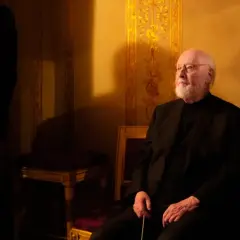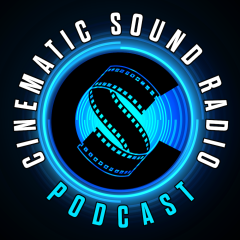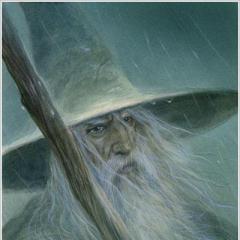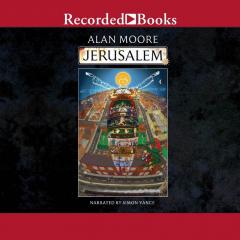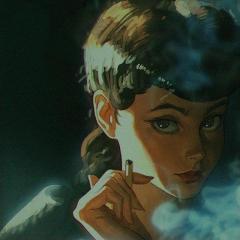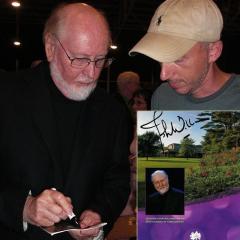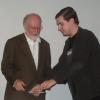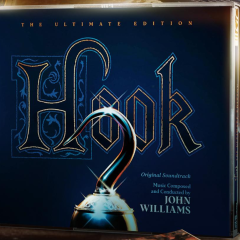Search the Community
Showing results for tags 'John WIlliams'.
-
Given the conversion in some of the other threads, I thought I would start a poll asking whether you want JW to score episode VII, whether or not he is asked and/or is interested. Given this website, one might think the answer is obvious. However, given some of the conversation, I am not so sure. So, here it is.
-
IFMCA Nominations 2012 http://filmmusiccritics.org/2013/02/ifmca-nominations-2012/ INTERNATIONAL FILM MUSIC CRITICS AWARD NOMINATIONS REVEAL MOST OPEN RACE IN YEARS, WITH MULTIPLE NOMINATIONS FOR DANNA, DESPLAT, VELÁZQUEZ, WILLIAMS FEBRUARY 7, 2013 — The International Film Music Critics Association (IFMCA) announces its list of nominees for excellence in musical scoring in 2012. The largest numbers this year are, for the most part, split evenly between four composers, all of whom received four nominations: MYCHAEL DANNA, ALEXANDRE DESPLAT, FERNANDO VELÁZQUEZ and veteran composer JOHN WILLIAMS. The nominations for Danna, Velázquez and Williams were each for a single score – director Ang Lee’s vivid shipwreck drama LIFE OF PI, director Juan Antonio Bayona’s harrowing tsunami drama THE IMPOSSIBLE [LO IMPOSIBLE] and director Steven Spielberg’s look at the last months of the life of Abraham LINCOLN, respectively. Desplat’s nominations were for his body of work in 2012 which included writing IFMCA Award-nominated music for the quirky comedy MOONRISE KINGDOM, the storybook animation RISE OF THE GUARDIANS, and the contemporary war thriller ZERO DARK THIRTY, as well as for the 1970s espionage thriller ARGO, the realistic French romantic drama RUST AND BONE [DE ROUILLE ET D’OS], the Italian satirical comedy REALITY, and the French-language biopic CLOCLO. The other nominees for Film Score of the Year are the ambitious sci-fi drama CLOUD ATLAS by Tom Tykwer, Johnny Klimek and Reinhold Heil (two nominations), and director Peter Jackson’s epic fantasy prequel THE HOBBIT: AN UNEXPECTED JOURNEY by Howard Shore (two nominations). Danna, Desplat, Velázquez and Williams are also short-listed for Film Composer of the Year along with DANNY ELFMAN, who enjoyed a stellar year composing music for such popular and successful films as DARK SHADOWS, FRANKENWEENIE, HITCHCOCK, MEN IN BLACK III, PROMISED LAND and SILVER LININGS PLAYBOOK. The IFMCA recognizes emerging talent in the film music world, and this year is no exception. The nominees in the Breakout Composer of the Year category include young Spanish composer ZELTIA MONTES for her work on the Spanish feature drama VILAMOR; composer DAN ROMER and composer/director BENH ZEITLIN for their captivating bluegrass-flavored score for the critically acclaimed BEASTS OF THE SOUTHERN WILD; JOSEPH TRAPANESE for his work on the animated TV show TRON: UPRISING; NATHAN JOHNSON for his unconventionally percussive music for the acclaimed sci-fi thriller LOOPER; and composer/conductor NIC RAINE, a long time associate of the late John Barry and contributor to Silva Screen and Tadlow Music’s series of re-recordings, who has begun to establish his own musical voice through his score for the German-language thriller WIR WOLLTEN AUFS MEER. As it has in previous years, the IFMCA takes pride in honoring composers from across the film music world; this year’s international nominees include French composer Philippe Rombi for his work on director François Ozon’s thriller DANS LA MAISON, Finnish composer Panu Aaltio for the beautiful nature documentary score METSÄN TARINA, UK-based Portuguese composer Miguel d’Oliveira’s score for the BBC documentary SHAKESPEARE & US, Argentinean composer Federico Jusid’s music for the Spanish TV series ISABEL, and Japanese composer Naoki Sato’s contribution to the Japanese TV series PRICELESS. Several composers are receiving their first ever IFMCA Award nominations this year, including JON BRION (Paranorman, Animation), ROBERT FOLK (There Be Dragons – Secretos de Pasión, Drama), PASCAL GAIGNE (Los Mundos Sutiles, Documentary), GRANT KIRKHOPE (Kingdoms of Amalur: Reckoning, Video Game), WALTER MURPHY (Ted, Comedy), FREDERIK WIEDMANN (Green Lantern: The Animated Series, Television), and the team from Blizzard Entertainment led by RUSSELL BROWER and NEAL ACREE (World of Warcraft: Mists of Pandaria, Video Game). The International Film Music Critics Association will announce the winners of the 9th IFMCA Awards on February 21, 2013. ============================================= THE NOMINEES 2012 Film Categories FILM SCORE OF THE YEAR CLOUD ATLAS, music by Tom Tykwer, Johnny Klimek and Reinhold Heil THE HOBBIT: AN UNEXPECTED JOURNEY, music by Howard Shore THE IMPOSSIBLE, music by Fernando Velázquez LIFE OF PI, music by Mychael Danna LINCOLN, music by John Williams FILM COMPOSER OF THE YEAR MYCHAEL DANNA ALEXANDRE DESPLAT DANNY ELFMAN FERNANDO VELÁZQUEZ JOHN WILLIAMS BREAKOUT COMPOSER OF THE YEAR NATHAN JOHNSON ZELTIA MONTES NIC RAINE DAN ROMER & BENH ZEITLIN JOSEPH TRAPANESE BEST ORIGINAL SCORE FOR A DRAMA FILM ANNA KARENINA, music by Dario Marianelli THE IMPOSSIBLE, music by Fernando Velázquez LIFE OF PI, music by Mychael Danna LINCOLN, music by John Williams THERE BE DRAGONS – SECRETOS DE PASIÓN, music by Robert Folk BEST ORIGINAL SCORE FOR A COMEDY FILM MOONRISE KINGDOM, music by Alexandre Desplat SALMON FISHING IN THE YEMEN, music by Dario Marianelli THE SESSIONS, music by Marco Beltrami SILVER LININGS PLAYBOOK, music by Danny Elfman TED, music by Walter Murphy BEST ORIGINAL SCORE FOR AN ACTION/ADVENTURE/THRILLER FILM THE AMAZING SPIDER-MAN, music by James Horner DANS LA MAISON, music by Philippe Rombi THE DARK KNIGHT RISES, music by Hans Zimmer SKYFALL, music by Thomas Newman ZERO DARK THIRTY, music by Alexandre Desplat BEST ORIGINAL SCORE FOR A FANTASY/SCIENCE FICTION/HORROR FILM CLOUD ATLAS, music by Tom Tykwer, Johnny Klimek and Reinhold Heil THE HOBBIT: AN UNEXPECTED JOURNEY, music by Howard Shore JOHN CARTER, music by Michael Giacchino PROMETHEUS, music by Marc Streitenfeld, additional music by Harry Gregson-Williams SINISTER, music by Christopher Young BEST ORIGINAL SCORE FOR AN ANIMATED FEATURE BRAVE, music by Patrick Doyle FRANKENWEENIE, music by Danny Elfman PARANORMAN, music by Jon Brion RISE OF THE GUARDIANS, music by Alexandre Desplat SECRET OF THE WINGS, music by Joel McNeely BEST ORIGINAL SCORE FOR A DOCUMENTARY FEATURE KINGDOM OF PLANTS, music by Joel Douek, Freddy Sheinfeld and Elik Alvarez LOS MUNDOS SUTILES, music by Pascal Gaigne METSÄN TARINA, music by Panu Aaltio SAMSARA, music by Lisa Gerrard and Michael Stearns SHAKESPEARE & US, music by Miguel d’Oliveira FILM MUSIC COMPOSITION OF THE YEAR “The Cloud Atlas Sextet for Orchestra” from CLOUD ATLAS, music by Tom Tykwer, Johnny Klimek and Reinhold Heil “The Impossible Main Title” from THE IMPOSSIBLE, music by Fernando Velázquez “John Carter of Mars” from JOHN CARTER, music by Michael Giacchino “Pi’s Lullaby” from LIFE OF PI, music by Mychael Danna and Bombay Jayashri “The Peterson House and Finale” from LINCOLN, music by John Williams Other 2012 Categories BEST ORIGINAL SCORE FOR A TELEVISION SERIES DOCTOR WHO, music by Murray Gold DOWNTON ABBEY, music by John Lunn GREEN LANTERN: THE ANIMATED SERIES, music by Frederik Wiedmann ISABEL, music by Federico Jusid PRICELESS, music by Naoki Sato BEST ORIGINAL SCORE FOR A VIDEO GAME OR INTERACTIVE MEDIA JOURNEY, music by Austin Wintory KINGDOMS OF AMALUR: RECKONING, music by Grant Kirkhope RESISTANCE: BURNING SKIES, music by Jason Graves and Kevin Riepl STARHAWK, music by Christopher Lennertz WORLD OF WARCRAFT: MISTS OF PANDARIA, music by Russell Brower, Neal Acree, Sam Cardon, Edo Guidotti and Jeremy Soule BEST ARCHIVAL RELEASE OF AN EXISTING SCORE - BEN-HUR, music by Miklós Rózsa; album produced by Lukas Kendall, Mike Matessino and Neil S. Bulk; liner notes by Jeff Bond and Frank K. DeWald; album art direction by Joe Sikoryak (Film Score Monthly) - CONAN THE BARBARIAN, music by Basil Poledouris; album produced by Nick Redman and Douglass Fake; liner notes by Nick Redman; album art direction by Joe Sikoryak (Intrada) - HOOK, music by John Williams; album produced by Didier C. Deutsch, Mark G. Wilder, MV Gerhard and Matt Verboys; liner notes by Daniel Schweiger; album art direction by Jim Titus (La-LaLand) - STAR TREK: THE MOTION PICTURE, music by Jerry Goldsmith; album produced by Didier C. Deutsch, Mike Matessino, Bruce Botnick, MV Gerhard, Matt Verboys and David C. Fein; liner notes by Jeff Bond and Mike Matessino; album art direction by Jim Titus (La-La Land) - STAR TREK: THE ORIGINAL SERIES, music by Alexander Courage, George Duning, Jerry Fielding, Gerald Fried, Sol Kaplan, Samuel Matlovsky, Joseph Mullendore and Fred Steiner; album produced by Lukas Kendall, Neil S. Bulk, Jeff Bond, MV Gerhard, and Matt Verboys; liner notes by Jeff Bond; album art direction by Joe Sikoryak (La-La Land) BEST ARCHIVAL RE-RECORDING OF AN EXISTING SCORE - THE ADVENTURES OF DON JUAN/ARSENIC AND OLD LACE, music by Max Steiner; conducted by William Stromberg; album produced by William Stromberg, John Morgan and Anna Bonn; liner notes by James V. d’Arc, Ryan Brennan and Curt Hardaway; album art direction by Jim Titus (Tribute Film Classics) - NOTRE DAME DE PARIS – THE MUSIC OF MAURICE JARRE, music by Maurice Jarre; conducted by Nic Raine; album produced by James Fitzpatrick; liner notes by James Fitzpatrick and Frank K. DeWald; album art direction by Damien Doherty (Tadlow) - QUO VADIS?, music by Miklós Rózsa; conducted by Nic Raine; album produced by James Fitzpatrick and Luc Van de Ven; liner notes by Frank K. DeWald; album art direction by GINKO DIGI (Prometheus/Tadlow) - THE RED HOUSE, music by Miklós Rózsa; conducted by Allan Wilson; album produced by Kevin Kaska and Douglass Fake; liner notes by Dan Robbins and Frank K. DeWald; album art direction by Joe Sikoryak (Intrada) - WINGS, music by J.S. Zamecnik; conducted by Peter Boyer and Ira Hearshen; album produced by Dominik Hauser, Jeannie Gayle Pool, Dan Goldwasser, MV Gerhard and Matt Verboys; liner notes by Jeannie Gayle Pool; album art direction by Dan Goldwasser (La-La Land) FILM MUSIC RECORD LABEL OF THE YEAR INTRADA RECORDS, Douglass Fake, Roger Feigelson LA-LA LAND RECORDS, MV Gerhard, Matt Verboys, Neil S. Bulk, Dan Goldwasser MOVIESCORE MEDIA, Mikael Carlsson QUARTET RECORDS, Jose M. Benitez TADLOW MUSIC, James Fitzpatrick ============================================= The International Film Music Critics Association (IFMCA) is an association of online, print and radio journalists who specialize in writing about original film and television music. Since its inception, the IFMCA has grown to comprise almost 60 members from countries as diverse as Belgium, Canada, Cyprus, France, Germany, Greece, Ireland, Italy, the Netherlands, Norway, Poland, Spain, Sweden, Switzerland, the United Kingdom, and the United States of America. Previous IFMCA Score of the Year Awards have been awarded to John Williams’ WAR HORSE in 2011, John Powell’s HOW TO TRAIN YOUR DRAGON in 2010, Michael Giacchino’s UP in 2009, Alexandre Desplat’s THE CURIOUS CASE OF BENJAMIN BUTTON in 2008, Dario Marianelli’s ATONEMENT in 2007, James Newton Howard’s LADY IN THE WATER in 2006, John Williams’ MEMOIRS OF A GEISHA in 2005 and Michael Giacchino’s THE INCREDIBLES in 2004.
-
Here is a list of people of power that might not only help the nomination process along, but also might be able to put the money up for the star's installation: Hollywood Bowl Hollywood Bowl inducted John Williams into their Hall of Fame in 2000. He performs there every year. http://www.hollywoodbowl.com/about/contact-us/contact-send.cfm?name=Press%20Department&email=acrane 213.972.3034 Steven Speilberg Composed the scores to almost all of Mr. Speilberg’s films including the Indiana Jones trilogy, Jaws, and E.T. the Extraterrestrial. PUBLICIST: Marvin Levy DreamWorks SKG 100 Universal City Plaza, Bldg.5121 Universal City, Ca 91608 818-733-9787 George Lucas Composed the scores for all six of the Star Wars films. http://letterstogeorge.com/ (put “John Williams” in subject line) Boston Pops Acted as conductor for the Boston Pops for twelve years. The Boston Pops were used to record many of his compositions. Bernadette Horgan Director of Media Relations 301 Massachusetts Avenue Boston, MA 02115 Telephone:(617)-638-9285 Email:bhorgan@bso.org Chris Columbus John Williams composed the film scores for the first two Harry Potter films as well as Home Alone. Chris Columbus William Morris Endeavor Entertainment 9601 Wilshire Blvd. 3rd Floor Beverly Hills, CA 90210 Academy Awards Composed the music for their awards ceremony. Has been nominated 45 times (most nominations of any one person) and won five Oscars. http://www.oscars.org/contact/press.html Walk of Fame Committee These are the people to make the decision to give him the star. http://www.walkoffame.com/contact
- 94 replies
-
- john williams
- star
-
(and 2 more)
Tagged with:
-
I know this is just repeating what is said on the JWFan main page but I thought this would warrant its own thread for discussion. This is really fantastic news
- 48 replies
-
- Oboe Concerto
- Oboe
-
(and 4 more)
Tagged with:
-
http://www.blu-ray.com/news/?id=7943 Universal announces Jaws on Blu-Ray, august 2012
- 202 replies
-
- Movie Talk
- Steven Spielberg
-
(and 2 more)
Tagged with:
-
http://www.hometheat...ry-blu-ray-book The extra contents will feature Warner at War, a 2008 documentary narrated by Steven Spielberg and with original music by John Williams (according to IMDb).
- 172 replies
-
- Steven Spielberg
- Movie Talk
-
(and 1 more)
Tagged with:
-
It'd been so long by now, but I've just been listening to the complete Grey Havens track (as heard on the CR) and it felt so fresh and moving to me; I was actually compelled to compare it with E.T.'s legendary farewell cue which too deals with exactly same themes as the LotR piece. Both have moved me to tears within their respective films and indeed outside of them as music in their own right. What's interesting though is there's a massive dramatic and stylistic gulf between the pieces - with E.T.'s cue being very much the full-on romanticised hit of sheer unabashed sentimentalism and RotK instead taking a far more tactile and reflective approach whose own melancholic flavour seems to work on more of a reflective, yearning level. It's a very gentle piece. The two cues are desperately bitter-sweet, but very different in terms of how they ultimately accomplish the same thing. Which do you prefer?
- 111 replies
-
- The Lord Of The Rings
- John Williams
-
(and 2 more)
Tagged with:
-
Just thought I would share the question I am asking on Facebook. I'm asking the question what is your favourite John Williams soundtrack? Its over at http://www.facebook.com/TheBeardedTrio I'm not asking you to like the page or anything like that but just doing this as a fan. By the way Star Wars is winning at the mo Rob
- 17 replies
-
- john williams
- soundtrack
-
(and 2 more)
Tagged with:
-
Is there any article, interview or any documented evidence to suggest JW has read LOTR, or possibly any of Tolkien's other works?
- 78 replies
-
- John Williams
- Tolkien
-
(and 1 more)
Tagged with:
-
Now that I finally got to hear the OST - the score Shore intended for The Hobbit - I feel it was fairly disrespectful to replace much of this masterful and profound production with music pretty much copy and posted from the original LOTR soundtracks. The soundtrack is simply great and I wish it would have been preserved in the film. Then I wonder about The Phantom Menace. We all know how Williams' score was chopped up and butchered for the final act. But what if Lucas had taken a similar route Jackson took and had actually placed familiair music from ESB or ROTJ in TPM instead of Williams' newly written score...? What if Darth Maul's appearance would suddenly be put to The Imperial March, completely ignoring Williams' new material for the scene...? Would that be something like the Nazgul music supporting an important scene involving Thorin in The Hobbit? Well, at least The Hobbit got a proper official release. So which score do you feel got the most disrespect in the editing room...?
- 30 replies
-
- The Hobbit
- Tolkien
-
(and 5 more)
Tagged with:
-
Just posted on my blog about what I believe is a bit of Battlestar in The Phantom Menace soundtrack. I was listening to the expanded edition of TPM the other day and came across the part on the track entitled "Anakin Is Free." There is a definite similarity between the two. I've put the two vids on my post but will post here if you want. Not sure if its been noticed before or even if its just me. what do you think? http://www.thebeardedtrio.com/2012/12/does-john-williams-pay-homage-to.html Rob
- 30 replies
-
- star wars
- phantom menace
-
(and 2 more)
Tagged with:
-
http://www.comingsoon.net/news/movienews.php?id=87591
- 291 replies
-
- Steven Spielberg
- Indiana Jones
-
(and 2 more)
Tagged with:
-
What would you think if at John Williams' next concert in December, he did a performace of Aaron Copland's Lincoln Portrait with Daniel Day-Lewis as narrator??
- 2 replies
-
- John Williams
- Lincoln
- (and 7 more)
-
I'd like to announce a concert I will be presenting outside of Boston, Massachusetts, An Organ Tribute to John WIlliams, on Saturday, June 30 at 7:00 PM. In celebration of the maestro's 80th birthday, I have assembled a program of works spanning his career arranged for/improvised at the organ, in this case the mighty Louise S. Janesco Memorial Organ, a digital instrument of 58 stops equipped with six complete organ suites and MIDI. The program will include extended medleys from the Star Wars, Harry Potter, and Indiana Jones franchises, as well as a special tribute to American heroes accompanied by "Hymn to the Fallen". If there is sufficient interest, we may stream the event for those who can't be present physically that evening, or explore the possibility of repeating the program in other venues in New England and beyond. The concert will be held at St. Luke's Evangelical Lutheran Church, 950 East Street in Dedham, Massachusetts. The venue is easily accessible by I-95 off the Mass Thruway or from Boston by the Franklin Line MBTA. This event is FREE and open to all - any freewill offerings received will benefit St. Luke's Music Ministry. Hope to see you there! _ _ Robert S. Potterton, III MSM/SPC Director of Worship Arts St. Luke's Lutheran Church Dedham, MA
- 31 replies
-
I find this soundtrack to be really interesting. The strange thing about it is that "Sean's Theme" and "A New Beginning [Minority Report]" seem to be really misplaced in the soundtrack, although they are probably the two best tracks - Precrime to the Rescue" is good too . Do not get me wrong, I like the soundtrack, but 80%of the soundtrack sounds a lot like "Attack of the Clones". I really like "A New Beginning [Minority Report]", it sounds vaguely familiar. Is it based on some previous work?
-
http://www.lastfm.se...MONIC+ORCHESTRA Does any of you know if this is like a tribute-thing or will Hans and John actually be there? I was extremely surprised and happy when I saw this today, and even if it's just a tribute I'm sure it'll be amazing.
- 9 replies
-
- hans zimmer
- john williams
-
(and 1 more)
Tagged with:
-
So yeah, this was a piece I wrote for my friends (since they think everything I write sounds like a "hot airballoon ride". I explored the concept of leitmotif and having each cue have its own theme (as Williams does). I'm posting it on this website because, well almost everyone here is a John Williams fan, and I'm sure you'll be able to find each theme of the characters/scenes on your own (based on extensive cue/soundtrack analysis I've found here.) Here is a more detailed list of each cue featured in the score: Opening Fanfare ( - ) Introduction of the Hero and the Glance ( - ) Setting Up and Take Off ( - ) Flight of The Dirigibles ( - ) Death ( - ) The Villain's Airship ( - ) Stare Down ( - ) The Chase Scene ( - ) Hero In Trouble ( - ) Flames!( - ) Victory! ( - ) Peering Over The Edge ( - ) What's That? ( - ) Ascension ( - ) The Audience Waits ( - ) Return ( - ) Hero Fanfare ( - ) Race Fanfare ( -end) In the song, there are about three distict themes featured throughout the score: The Race Fanfare The Hero's Theme The Airship See if you can find each theme, as they are occasionally hidden! This is a sort of challenge for you Williams fans out there and a way to get my work critiqued by trained ears! Just so you know, I'm only 16, stopped playing piano years ago. It was written on Finale 2009 by hand, since I have no keyboard/midi cable. Enjoy!
- 5 replies
-
- john williams
- composing
- (and 7 more)
-
So yeah, this was a piece I wrote for my friends (since they think everything I write sounds like a "hot airballoon ride". I explored the concept of leitmotif and having each cue have its own theme (as Williams does). I'm posting it on this website because, well almost everyone here is a John Williams fan, and I'm sure you'll be able to find each theme of the characters/scenes on your own (based on extensive cue/soundtrack analysis I've found here.) Here is a more detailed list of each cue featured in the score: Opening Fanfare ( - ) - Just a picture of a field with a whole bunch of steampunk balloons. Introduction of the Hero and the Glance ( - ) Setting Up and Take Off ( - ) Flight of The Dirigibles ( - ) Death ( - ) - The Villain's Airship ( - ) - Stare Down ( - ) The Chase Scene ( - ) Hero In Trouble ( - ) Flames!( - ) Victory! ( - ) Peering Over The Edge ( - ) What's That? ( - ) Ascension ( - ) The Audience Waits ( - ) Return ( - ) Hero Fanfare ( - ) Race Fanfare ( -end) In the song, there are about three distict themes featured throughout the score: The Race Fanfare The Hero's Theme The Airship See if you can find each theme, as they are occasionally hidden! This is a sort of challenge for you Williams fans out there and a way to get my work critiqued by trained ears! Just so you know, I'm only 16, stopped playing piano years ago. It was written on Finale 2009 by hand, since I have no keyboard/midi cable. Enjoy!
-
- john williams
- composing
- (and 7 more)
-
Heard La-La Land's 1941 set? Discuss here! The original thread can still be used for "Ordered!", "Low Quantity alert", "Mine arrived!" type posts. Please use this thread for all discussion of the actual content (music and packaging) of the release . Thanks! Really curious to hear what everyone thinks of this wonderful release!
-
I just spotted a very interesting interview with composer/orchestrator Conrad Pope on the Film Music Magazine's site. http://www.filmmusicmag.com/?p=8734 As always Pope is gentlemanly and very articulate about his craft and business. He is the man behind the orchestrations of some the biggest names in Hollywood, John Williams and Jerry Goldsmith among them, and a long time veteran in the business. It is always a joy to read his thoughts and I am very happy that he is getting some of the spotlight now with his score to My Week with Marilyn because he is without a doubt a talented, intelligent man of great musical spirit. Daniel Schweiger and Pope talk much besides his upcoming score for My Week with Marilyn, discussing the industry, Pope's role as an orchestrator and his experiences in the business. He also mentions Williams several times, noting for example that HP POA is in his opinion one of the most remarkable of Potter scores.
- 26 replies
-
- Film Music Magazine
- Orchestrator
- (and 5 more)
-
Max. 4 possibilities people. For me, that would be: The Adventures of Tintin Escape from the Karaboudjan The Captain's Counsel The Clash of the Cranes
- 43 replies
-
- Conrad Pope
- Andy Serkis
- (and 5 more)
-
I have created this little quiz. There are 18 John Williams soundtracks to guess. Can you name them all? http://www.thebeardedtrio.com/2011/10/john-williams-video-quiz-how-many-can.html GOOD LUCK answers are here http://www.thebeardedtrio.com/p/john-williams-video-quiz-answers.html No cheating.
- 26 replies
-
- john williams
- quiz
-
(and 1 more)
Tagged with:
-
Memoirs of a Geisha Review of the Soundtrack Album by Mikko Ojala Memoirs of a Geisha is based on the popular bestseller of Arthur Golden which was in 2005 adapted into a motion picture directed by Rob Marshall of the Chicago fame. The movie features a singular, more introspective score by John Williams which differs from most of his blockbuster fare in its restrained style yet plays a significant role in the film itself, where the music is often spotlighted perhaps due to Rob Marshall's background in musicals. The composer mentioned in several interviews that for this assignment he studied more the Japanese instruments than he did the Japanese music, especially how would these instruments enhance and blend with the Western orchestra and would give a certain ethnic colouring to it without dominating the soundtrack and make it too alien to the Western ears. There is a lot of atmosphere and ethnical touches on the soundtrack to emphasize the locale, time and place but to make it accessible to the audiences it is presented in Western orchestral idiom with the cello taking center stage. Williams was impressed with the book and immediately thought of cello to portray the character of Sayuri, of course not knowing that he would be scoring the film at any point. He knew that Spielberg had acquired the rights to the novel so there was an inkling of it being made into a film. Williams also thought of Yo-Yo Ma from the beginning, actually sending the book to him and talking to him about the possibility of scoring the film and the idea of cello. And later when the film was announced Williams did what by his own words he has done never before: He actively sought to score the film, asked for the assignment. This certainly shows how inspired and impressed Williams was by the story. The movie is very colourful and theatrical portrayal of Japanese culture, more an illusion than real. In other words it is pure Hollywood. The music has a large role in it, almost another character in the storytelling, an integral part of the drama. The film has several of what could be called musical numbers, Becoming a Geisha being the most prominent, so the music is allowed to shine throughout the film. But Williams' music even though it has a large part in the film, is not bombastic or overly lush. I think more than anything it is introspective and subtle, lyrical and delicate with a lot of underlying subtext both psychological and poetic. Most of all it is a portrayal of a society and culture. Hence it is restrained and subtle. I can't say to be an expert on Japanese culture and customs but I know that they are a reserved people and put a lot of emphasis on public appearance and honor. Public outbursts of big emotions is not part of their culture. I think the music follows this idea throughout. There is emotion in it but it is mostly not in Hollywood proportions. You have to read it more carefully. Often the emotion is tied to the instrumental solos, carrying all the unsaid and unexpressed in their timbre and voice. Only at the end of the movie the music blooms into larger than life emotion on the track Confluence where both of Sayuri's themes are performed in a grand manner offering an emotional closure as Sayuri and the Chairman are finally reunited, finally expressing their true feelings openly. Williams had as a starting point the cello as the voice of Sayuri's character. Cello that has a soulful and warm sound is indeed ideal to portray this young woman's journey through life and Yo-Yo Ma's expertise and artistry brings her alive in music in a way I do not think would have been possible with any other artist. The counterpoint to Sayuri's cello is the violin played to perfection by Itzhak Perlman that portrays the character of the Chairman. Both artists elevate the music with their playing immensely. These are really the two main components of the score. Oboe could be added to this instrumental group as it has a prominent role in the music as well being a lyrical and ruminating, showing perhaps Williams' attempt to capture some of those qualities he sees in Japanese culture. Thematically as instrumentally the music is built on Sayuri's theme and Chairman's theme. Sayuri has 2 different themes associated with her: Chiyo's theme, the musical identification of the young girl before she becomes a geisha, that could be called the real Sayuri's theme, depiction of the real person under the guise of the geisha (Journey to the Hanamachi 2;41-3;13, Confluence and finally A Dream Discarded which is a sort of deconstruction of the theme on cello. End Credits contains subtle interpolation of this theme in flute and chimes 1;36-1;53). And then there is the more prominent Sayuri's theme, the actual musical depiction of the geisha that can be heard throughout the soundtrack. Both themes are lyrical, Chiyo's music showing more fragile image of a young girl than Sayuri's theme that is elegant and mature but no less soulful. Cello is omnipresent in scenes involving Sayuri and many tracks containing cello solos involve her and inform us of her state of mind with beautiful and lyrical solo lines. The Chairman's Waltz is heavily European, even Slavonic in its style and contains a clear melodic line with very little decorative violin work that it might have gotten if not for the character's nature. The Chairman is reserved and nearly paternal at first in his encounters with Chiyo so the music is reserved, elegant, cultured, hinting of Western civilization as if to show how the Japanese of that day and age might have admired the European culture. It could be seen to depict Chiyo's idolized view of the Chairman as a citizen of the world, sophisticated and cultured. And as the music is strongly melancholic, described by Williams as valse triste, it could also hint at Chiyo's sadness for noticing how the Chairman does not return her affection (even if that is not the truth but this man does not show it publicly). Williams transforms this theme into an introspective elegy for solo oboe, harp and two celli in As the Water... where the waltz time is kept by the pizzicato celli and after the oboe solo the duo plays a deconstructed version of the waltz. This music marks both the passage of time in the film as well as Sayuri's sorrow of being separated from the Chairman. These two character portrayals are accompanied by several musical devices and shorter motifs that are associated with fate and destiny referenced clearly in the film. Williams has cleverly constructed highly symbolical and powerful yet simple and direct and they seem take their inspiration from water, also a prominent symbol in the film, a river, flow of destiny and the current of fate. There is a constant forward momentum in the music depicting the irrevocable flow of both time and fate of Sayuri/Chiyo or they are used in important moments in the story to note the changes of fate.This idea of water or flow of water/destiny can be heard in the music throughout from the constant motoric string figures accompanying Sayuri's theme to the End Credits. Most prominent of these destiny/water motifs is heard on the track Chiyo's Prayer 0;32-> in the accompanying strings, 3;03-> on solo cello, Finding Satsu 2;31-2;52 and Fire Scene and the Coming of War 4;31-> accompanying the Chairman's theme. There is the constant arpeggio-like up-and-down motion to it, usually voiced by strings, like a current that is carrying the main character forward on her path. Another motif associated with fate appears in Finding Satsu 0;05-0;40, and again in A New Name...A New Life 0;10-0;34 in a fuller guise and again at the end of the track 2;31-2;54. Even the Rooftops of Hanamachi contains a subtle quote of this motif as Sayuri tries to escape over the rooftops and her destiny and fate are uncertain (small portion of the motif is quoted 3;03-3;15). More of a self contained continuation of this water/destiny idea is the Destiny's Path track with the constant motion in the music without major thematic material. Williams also composed a good amount of singular set piece material for different scenes that enhances more the mood and ethnic flavour than adds to the thematic palette. Going to School, Brush On Silk, Dr. Crab's Prize, Rooftops of Hanamachi all add more authentic Japanese instruments to the orchestral palette and enhance the mood of the scenes. They add colour and variety to the music and give it a more Japanese flavour and reportedly Williams worked extensively with the soloists to integrate their sounds and range and timbres to the Western orchestral palette. He usually utilizes these instrumental colours with a ghosting effect from the regular orchestral instruments, e.g. with koto he has the concert harp ghosting the plucked sounds, creating an enhanced effect, which rings full and is subtly both familiar and exotic. E.g. Becoming a Geisha contains between the developments of Sayuri's theme a percussive interlude that not only adds ethnic flavour but in Williams' own words denotes almost a some sort of sacrifice taking place, the young girl being transformed into a geisha, losing her former life and identity in the process. This is a score you have to pay close attention to. You have to find the emotional core of this score from the soloist performances which are at center of this music rather than from bold and big performances of the themes, which are well integrated and stated throughout but certainly more restrained than in many Williams scores. There is an introspective atmosphere to this score but it is also an extremely beautiful and layered and nuanced, worth the time you invest in it. -Mikko Ojala-
- 2 replies
-
- Score
- John Williams
- (and 6 more)

